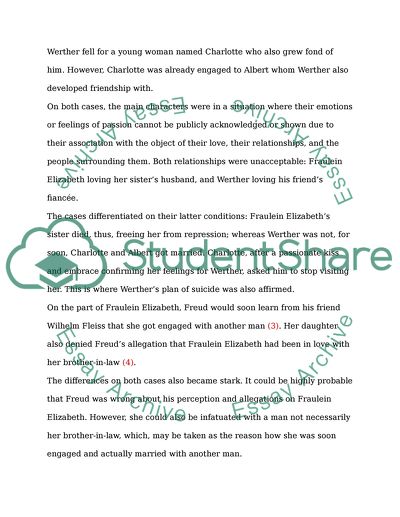Cite this document
(“Juxtaposing Freud's theory in Fr_ulein Elisabeth von R with Goethe's Essay”, n.d.)
Retrieved from https://studentshare.org/literature/1436347-juxtaposing-freuds-theory-in-frulein-elisabeth-von-r-with-goethes-the-sorrows-of-young-werther
Retrieved from https://studentshare.org/literature/1436347-juxtaposing-freuds-theory-in-frulein-elisabeth-von-r-with-goethes-the-sorrows-of-young-werther
(Juxtaposing Freud's Theory in Fr_ulein Elisabeth Von R With Goethe'S Essay)
https://studentshare.org/literature/1436347-juxtaposing-freuds-theory-in-frulein-elisabeth-von-r-with-goethes-the-sorrows-of-young-werther.
https://studentshare.org/literature/1436347-juxtaposing-freuds-theory-in-frulein-elisabeth-von-r-with-goethes-the-sorrows-of-young-werther.
“Juxtaposing Freud's Theory in Fr_ulein Elisabeth Von R With Goethe'S Essay”, n.d. https://studentshare.org/literature/1436347-juxtaposing-freuds-theory-in-frulein-elisabeth-von-r-with-goethes-the-sorrows-of-young-werther.


